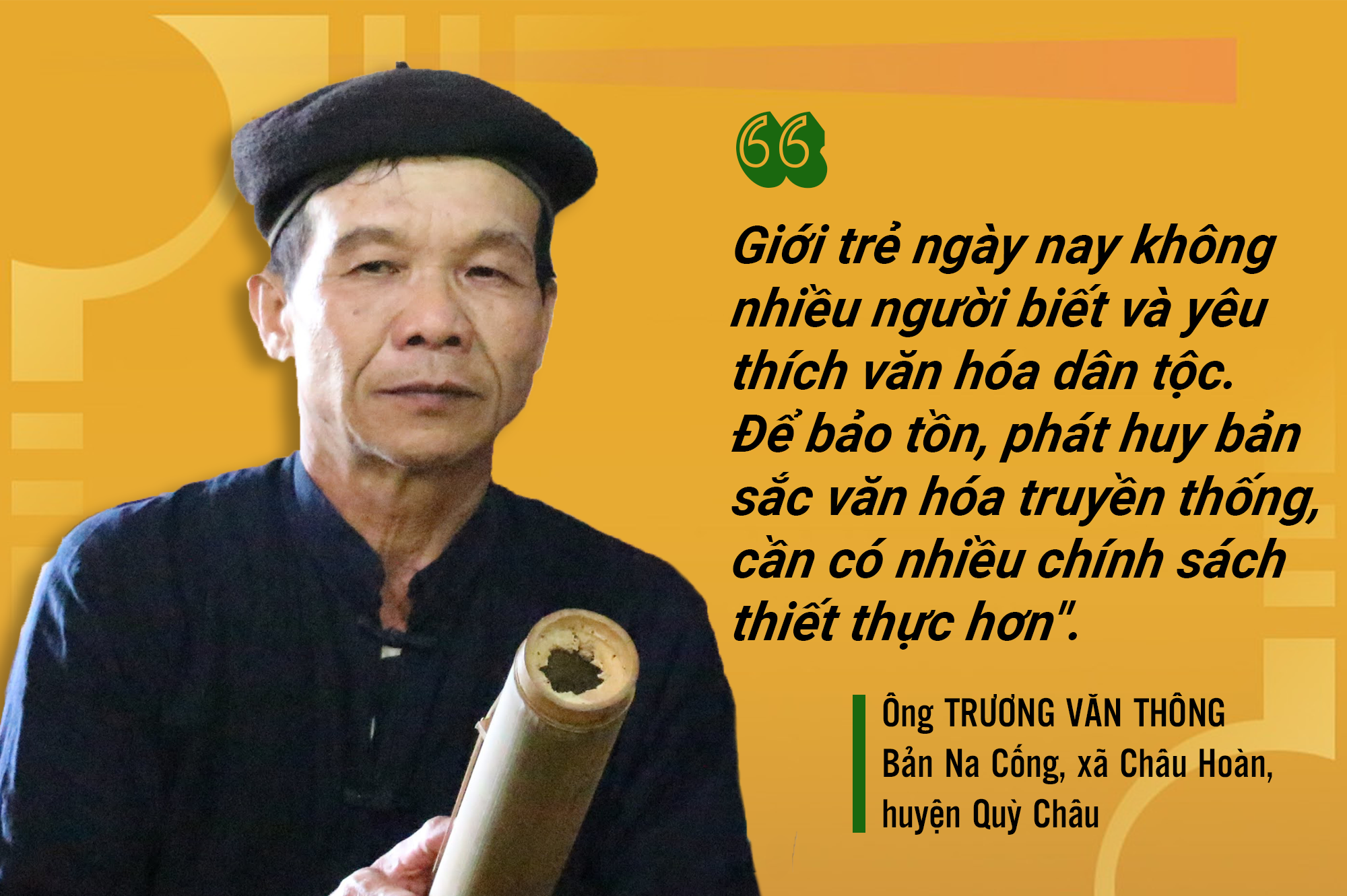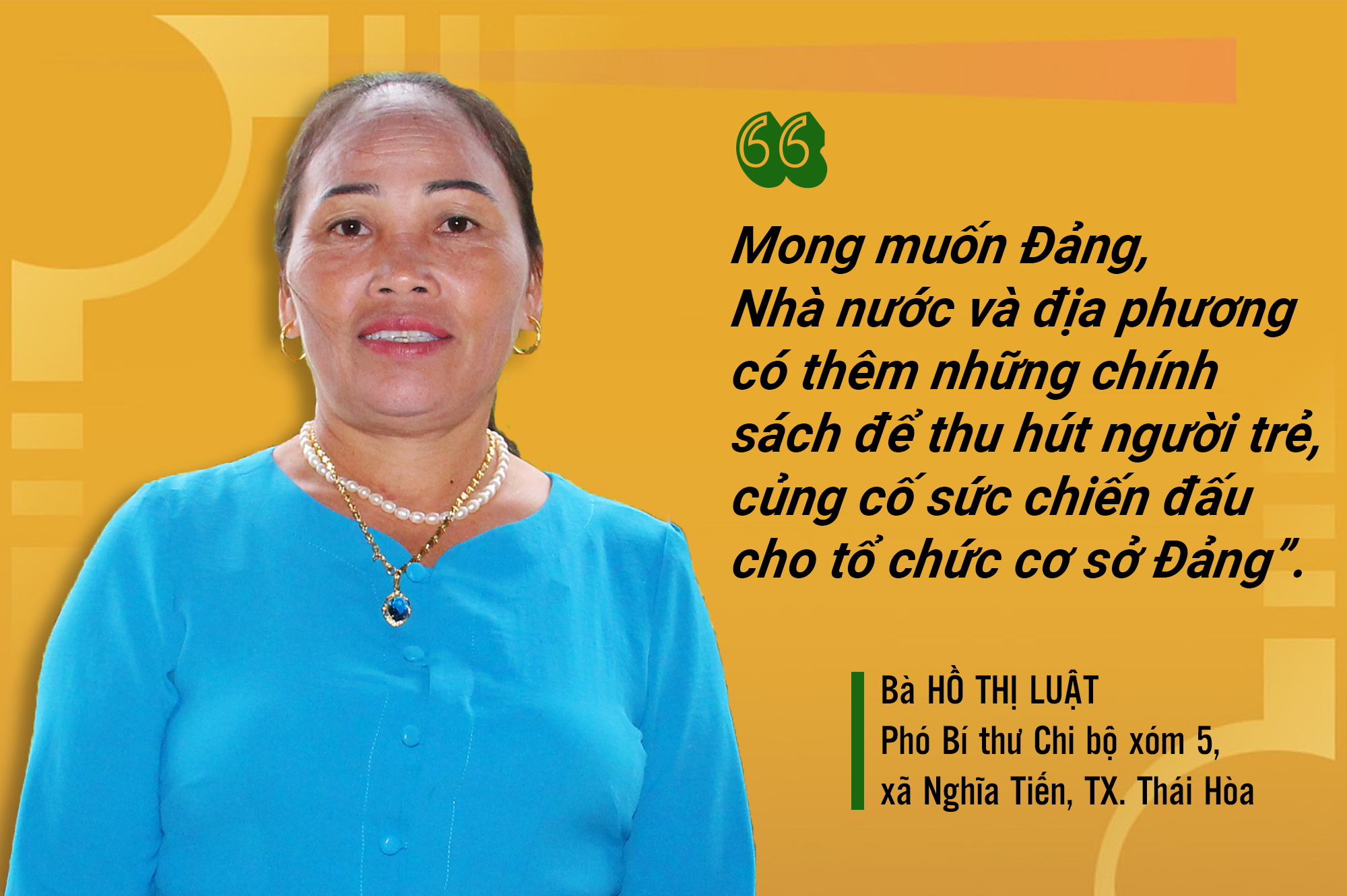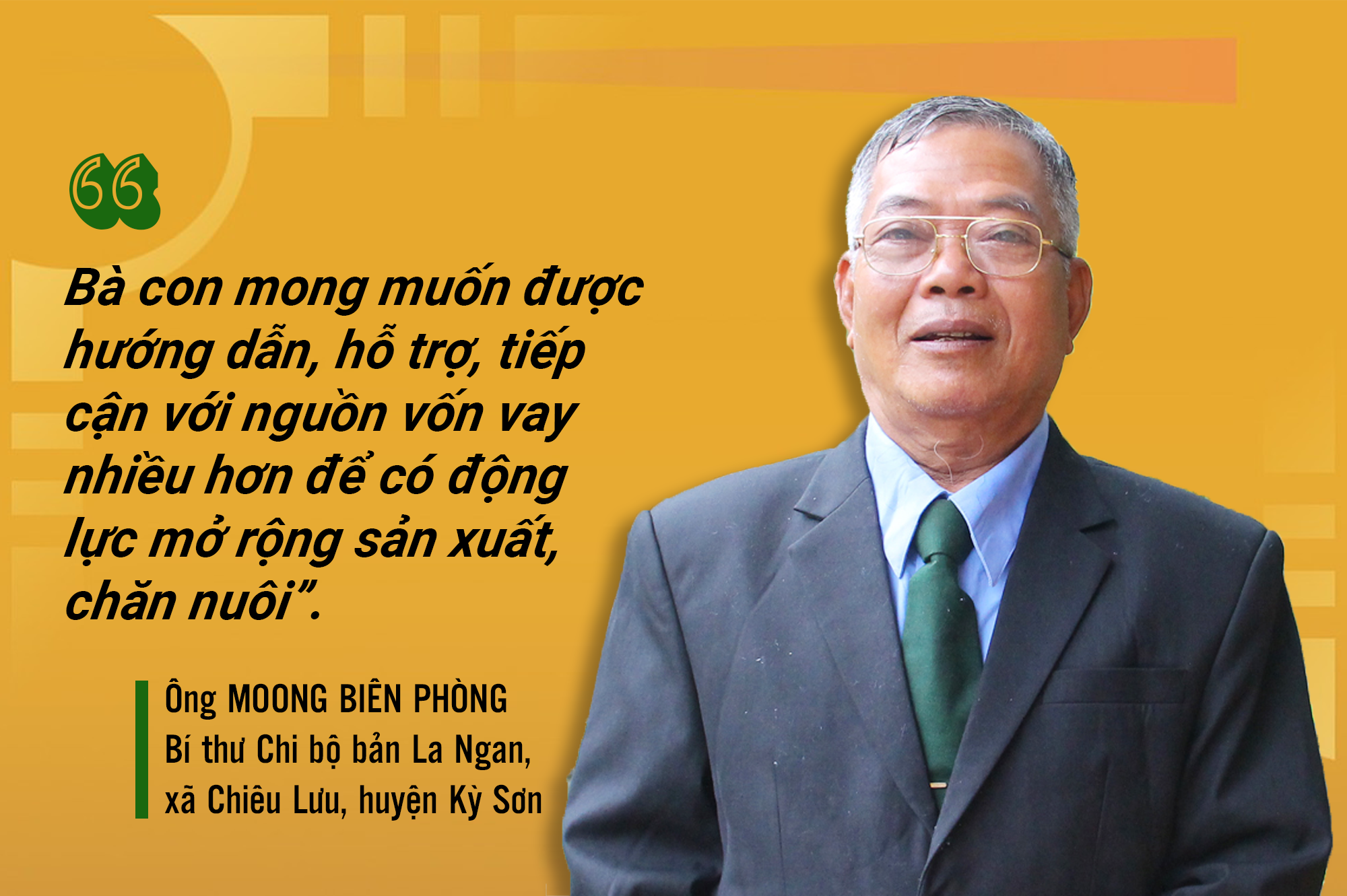The leaders of the villages in the Western region of Nghe An
(Baonghean.vn) - Prestigious people in ethnic minority areas are always pioneers and leaders in implementing the Party's policies and the State's laws; propagating and mobilizing people to apply scientific and technological advances in production and animal husbandry; preserving and promoting good cultural identities, building great national unity. Attending the 2nd Conference to honor prestigious people in ethnic minority areas of Nghe An province in 2019, which took place on the afternoon of October 15, delegates expressed many wishes from practice.
Pioneer in Pha Khao
Pha Khao is considered one of the most remote and isolated villages in Mai Son commune, Tuong Duong district. But the Party Secretary of Gia Ba Gau village (born in 1971) said that despite the remoteness, in general, the villagers' lives have gradually improved.
I still remember, in 2002, when Ba Gau was elected by the villagers to hold the position of Party Cell Secretary, this remote village still had many difficulties: 100% of households in the village were poor, the rate of children dropping out of school was high, the situation of illegal migration to Laos still existed...
 |
| Photo: Phuoc Anh |
As a son of Pha Khao, growing up drinking water from Moong Nam source, Mr. Gia Ba Gau was very concerned about the poverty of his village. He understood that the key to that situation was the problem of awareness.
So, Gia Ba Gau repeatedly went to households with free migrants, telling them that such free migration was not right, children had to go to school, parents had to stay in the village to focus on farming and raising livestock.
Along with that, he mobilized party members in the branch to pioneer in eliminating old farming practices and applying scientific and technological advances in production so that people would believe and follow.
Old Man Ba Gau boldly brought rice to the village, and reclaimed the fallow fields to grow corn, ginger, squash, etc. He also encouraged the people to focus on raising cattle in captivity for commercial purposes, instead of grazing them in the forest as before. In particular, Old Man Ba Gau was also recognized by the people when he partly solved the "problem" of electricity for daily life by blocking the flow and installing a mini generator.
The mark of Party Cell Secretary Gia Ba Gau is still evident in the work of developing young party members. In recent years, many young party members of the 9x generation have become typical nuclei, pioneers in implementing socio-economic development movements.
Having done many things for the village, but Mr. Gia Ba Gau thinks that these are just natural things that a son of Pha Khao does for his homeland. His biggest wish now, as well as the villagers', is that Pha Khao soon has a national power grid, so that the people can have better conditions for economic development.
"Lighting" the passion for national culture
 |
| Photo: Luong Nga |
Born and raised in Na Cong village, Chau Hoan commune, Quy Chau district, since the age of 12, Mr. Truong Van Thong (born in 1958) was taught by his father and grandfather the "capital" of using musical instruments and folk songs of the Thai ethnic group skillfully and skillfully. Along with that, the traditional rituals and offerings that were only given to the male line were also engraved in his mind and served for local festivals.
For decades, the people of Chau Hoan commune have been calling him the “artisan” of the village. This respectful way of calling him comes from the fact that this man is always enthusiastic and passionate about preserving the national cultural identity, and despite many difficulties, he has not “cooled down” on the journey of passing on those good cultural values to the younger generation.
Not only during festivals, but also at many times during the year, Mr. Thong's stilt house is always filled with the sound of singing and panpipes. He gathers children from nearby and faraway villages, teaches them how to sing nhuon and xuoi, and shows them how to make panpipes...
He said that children now have phones, televisions, and the internet, so at first learning to sing was very tedious, but gradually, they have come to feel the beauty of their ethnic culture. “It would be very sad if Thai people did not know how to sing Nhuon or Xuoi. Not many young people today know and love ethnic culture. To preserve and promote traditional cultural identity, there needs to be more practical policies,” Mr. Truong Van Thong shared.
"Support" of the Turkish people
In hamlet 5, Nghia Tien commune, Thai Hoa town, Ms. Ho Thi Luat - Deputy Secretary of the Party Cell, Hamlet Chief and Head of the Farmers' Association is known as a typical example of "talking and doing", contributing to changing the thinking and working style of the Tho ethnic people here.
In the middle of a fruit-laden grapefruit garden in its third harvest, Ms. Luat said that her family has boldly converted 2.5 hectares of ineffective agricultural production to grow Quang Tien pink grapefruit and cultivate rubber trees. Up to now, the model has brought in an income of about 90 million VND/year.
 |
| Photo: Thanh Quynh |
After the success of the Deputy Party Secretary, many young party members and people in the village learned and developed the model, "transforming" nearly ten hectares of hilly land into fruit farms for sustainable income.
From here, the movement to reclaim barren land and hills was implemented synchronously by the people. Mrs. Ho Thi Luat also mobilized 105 households in the hamlet to participate in short-term vocational training classes such as beekeeping, chicken farming, veterinary... Thanks to that, the lives of the people in hamlet 5 have increasingly improved.
When life gradually escaped from poverty, she stood up to mobilize people to join hands and unite to build new rural areas. Together with the Party Committee, she went to each household to propagate and encourage people to donate land to open roads, collect garbage, dredge canals, and clean up villages to keep the environment green, clean, and beautiful.
The female Deputy Secretary of the Party Cell, who is trusted by the people and considered as a "support" in these grassroots movements, expressed her hope: Currently, most of the heads of Party cells and hamlets are old people, lacking the participation of the younger generation. Therefore, she hopes that the Party, State and locality will have more policies to attract young people and strengthen the fighting strength of grassroots Party organizations.
"Leader" in La Ngan
For more than 10 years as Secretary of the La Ngan village Party Cell, Chieu Luu commune, Ky Son district, Mr. Moong Bien Phong has devoted all his heart and soul to helping 142 Khmu households in La Ngan rise up to build a new life.
 |
| Photo: Thanh Quynh |
Realizing the responsibility of a prestigious person in the community, Mr. Moong Bien Phong tries to propagate and encourage people to work hard and apply agricultural extension models supported by the State to improve their lives. In particular, he is a pioneer in eliminating backward customs, encouraging his children to study, not letting them be uneducated, illiterate and then be taken advantage of and deceived by bad people.
Economically, he always took the lead in reclaiming land in Bai Phang and Khe Tieu to build a farm to raise more than 10 buffaloes and cows and brought in valuable fruit trees and agricultural crops for cultivation.
When the model was successful, he actively shared with the people what he knew and understood. That contributed to strengthening the people's confidence and encouraging their proactive spirit in economic development.
Thanks to that, La Ngan's appearance is getting better and better. Currently, the whole village has more than 40 households protecting and raising more than 100 hectares of forest. On average, each household raises 3-5 cattle and has more than 20 hectares of forestry. On average, each year, the village has 5-10 poor households, and over 20 households have become well-off.
“Leaders” in La Ngan said that raising awareness and developing the economy are the “keys” to sustainable poverty reduction. “People want to be guided, supported, and have access to more loans to have the motivation to expand production and livestock farming.”
